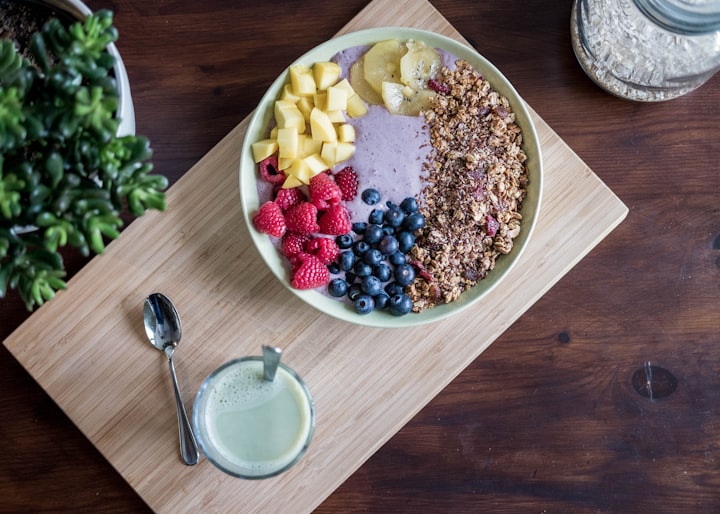"The Ultimate Guide to Creating a Balanced and Effective Diet Plan"
Creating a Balanced and Effective Diet Plan: Your Ultimate Guide to Optimal Health and Well-being

Creating a Balanced and Effective Diet Plan: Your Ultimate Guide
Maintaining a healthy and balanced diet is crucial for your overall well-being and vitality. However, amidst the sea of conflicting information, it can be challenging to navigate the world of nutrition and develop a diet plan that works for you. In this comprehensive guide, we will break down the key elements of a balanced and effective diet plan to help you achieve your health and wellness goals.
Know Your Nutritional Needs:
To create a personalized diet plan, it's important to understand your unique nutritional requirements. Factors such as age, sex, weight, height, activity level, and any underlying health conditions play a significant role in determining your dietary needs. Consulting with a healthcare professional or a registered dietitian can provide you with valuable insights into the nutrients your body requires and any specific dietary restrictions or considerations you should keep in mind.
Prioritize Nutrient-Dense Foods:
Building a balanced diet starts with a strong foundation of nutrient-dense foods. These include fruits, vegetables, whole grains, lean proteins, and healthy fats. Nutrient-dense foods provide a wealth of essential vitamins, minerals, antioxidants, and fiber. Aim to fill your plate with a colorful variety of fruits and vegetables, opt for whole grains instead of refined ones, choose lean sources of protein like poultry, fish, and legumes, and include healthy fats from sources like avocados, nuts, and olive oil.
Strike the Right Macronutrient Balance:
Macronutrients, namely carbohydrates, proteins, and fats, are crucial for a well-rounded diet. Finding the right balance of these macronutrients is essential. Carbohydrates provide energy, proteins support muscle growth and repair, and fats are necessary for hormone production and nutrient absorption. While the ideal macronutrient ratio varies from person to person, a general guideline is to aim for a diet consisting of approximately 45-65% carbohydrates, 10-35% protein, and 20-35% fats.
Practice Portion Control:
Even with the healthiest food choices, portion control is key. It's easy to overeat, especially when dining out or indulging in mindless snacking. Understanding proper portion sizes can help you maintain a healthy calorie balance and prevent excessive weight gain. You can use visual cues, such as comparing serving sizes to familiar objects, or consider employing portion control aids like measuring cups or a food scale until you develop a good sense of portion sizes.
Stay Hydrated:
Proper hydration is often overlooked but is vital for your overall health and well-being. Water is essential for digestion, nutrient absorption, circulation, and temperature regulation. Aim to drink at least eight glasses (64 ounces) of water per day, adjusting your intake based on factors like activity level and climate. Additionally, keep in mind that certain foods, such as fruits and vegetables, contribute to your hydration needs.
Mindful Eating and Listening to Your Body:
In today's fast-paced world, it's common to rush through meals or eat while distracted. Practicing mindful eating can help you develop a healthier relationship with food and enhance your overall well-being. Take time to savor each bite, chew slowly, and pay attention to hunger and fullness cues. Eat when you're hungry and stop when you're satisfied, rather than relying on external cues like portion sizes or finishing everything on your plate.
Customize for Your Preferences and Goals:
A successful diet plan should align with your personal preferences and goals to be sustainable in the long run. If you have specific dietary restrictions or cultural considerations, find suitable alternatives that still meet your nutritional needs. Additionally, if you have specific health or fitness goals, such as weight loss, muscle gain, or improved athletic performance, consider adjusting your calorie intake.
Creating a Balanced and Effective Diet Plan: Your Ultimate Guide





Comments
There are no comments for this story
Be the first to respond and start the conversation.